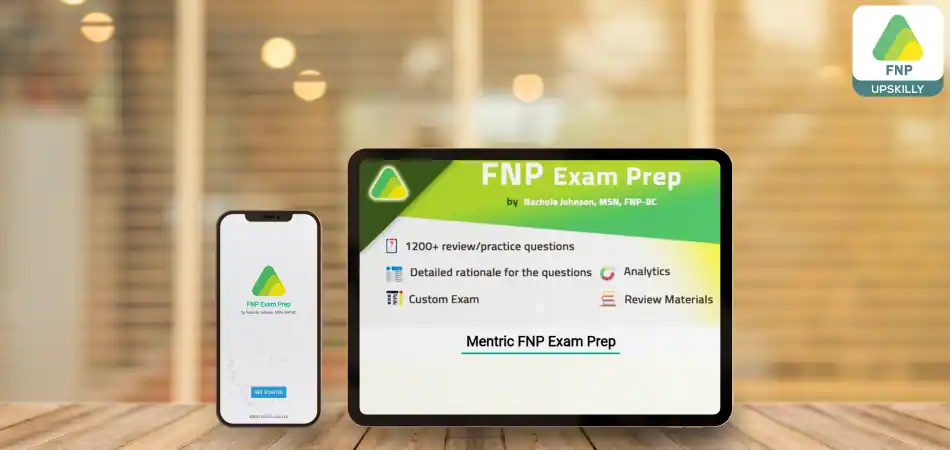FAMILY NURSE PRACTITIONER
- Home
- All Courses
- NURSING
- FAMILY NURSE PRACTITIONER
Overview
Are you looking to expand your nursing career and make a difference in patient care?
Consider becoming a certified Family Nurse Practitioner! With an FNP certification, you’ll have greater autonomy in patient care decision-making, the ability to provide holistic care for patients of all ages, and access to a wide range of job opportunities in primary care settings. Plus, you’ll be meeting the growing demand for primary care providers in the United States.
The Family Nurse Practitioner (FNP) exam is a certification examination designed to evaluate the clinical knowledge and skills of registered nurses (RNs) seeking to become licensed as advanced practice registered nurses (APRNs) specializing in family medicine. The exam is administered by the American Nurses Credentialing Center (ANCC) and is one of the most widely recognized certifications for nurse practitioners in the United States.
Why FNP?
-
Expanded career opportunities:
Becoming a certified FNP can open up a wide range of career opportunities in primary care settings, such as clinics, private practices, and hospitals. This can also lead to higher salaries and more advanced positions within the nursing field.
-
Focus on family medicine:
The FNP certification is specifically focused on family medicine, which allows nurses to develop expertise in caring for patients of all ages, from infants to elderly adults. This focus on family medicine can also provide a more holistic approach to patient care.
-
Advanced practice:
As advanced practice registered nurses, FNPs have greater autonomy in patient care decision-making, such as ordering and interpreting diagnostic tests, prescribing medications, and developing treatment plans. This can be very rewarding for nurses who want to take on more responsibility and have a greater impact on patient outcomes.
-
Meeting patient demand:
There is a growing demand for primary care providers in the United States, particularly in underserved areas. FNPs can play a key role in meeting this demand by providing high-quality, cost-effective care to patients in need.
- Professional recognition: Earning an FNP certification is widely recognized as a standard of excellence in the nursing profession. It demonstrates a commitment to ongoing education and professional development
FNP Test Plan
Topics
The Family Nurse Practitioner (FNP) certification exam covers a range of topics related to primary care, including:
Health Promotion and Disease Prevention
- Screening, assessment, and health education
- Immunizations and vaccination schedules
- Lifestyle modifications for chronic disease prevention
- Risk assessment and identification of health disparities
Assessment and Diagnosis
- Comprehensive physical assessment of patients across the lifespan
- Interpretation of laboratory and diagnostic tests
- Differential diagnosis and diagnostic reasoning
- Health history taking
Plan of Care
- Treatment planning and management of acute and chronic illnesses
- Pharmacotherapy, including prescription and monitoring of medications
- Referral and consultation
- Patient education and counseling
Professional Role and Policy
- Ethical, legal, and regulatory issues in healthcare delivery
- Scope of practice, standards of care, and quality improvement
- Cultural competence and patient-centered care
- Healthcare systems, healthcare financing, and healthcare policy
It is important to note that exam content may change over time, so it is always a good idea to refer to the official exam provider for the most up-to-date information.
Test Format
The Family Nurse Practitioner (FNP) certification exam is a computer-based test that consists of 175 multiple-choice questions. Of these, 150 questions are scored and 25 are pretest questions that are being evaluated for use in future exams.
The exam is administered by the American Nurses Credentialing Center (ANCC) and can be taken at a testing center or remotely through a secure testing platform. The exam has a time limit of 3.5 hours, and there are no scheduled breaks during the test.
The exam content is divided into four main domains:
- Assessment (43% of exam)
- Diagnosis (25% of exam)
- Plan (22% of exam)
- Evaluation (10% of exam)
The questions are designed to test your knowledge, skills, and abilities in each of these areas. Some questions may require you to select multiple correct answers, and others may require you to identify the best response from several possible options.
The passing score for the FNP certification exam is 350 points out of a possible 500. If you do not pass the exam on your first attempt, you may retake it up to three more times within a 12-month period. However, you must wait at least 60 days between attempts.
Exam Registration Process
Step 1- Determine eligibility: To be eligible for the FNP certification exam, you must hold a current, active RN license in the United States or its territories and have completed a graduate-level nursing program that meets ANCC’s criteria for advanced practice nursing.
Step 2- Create an ANCC account: If you meet the eligibility criteria, create an account on the ANCC website.
Step 3- Complete the application: Once you have an ANCC account, log in and complete the FNP certification exam application. This includes providing information about your education, experience, and licensure.
Step 4- Submit payment: The fee for the FNP certification exam is $395 for ANA members and $495 for non-members. You can pay online using a credit card or debit card.
Step 5- Schedule the exam: After your application is processed and your eligibility is confirmed, you will receive an Authorization to Test (ATT) email with instructions on how to schedule your exam. You can schedule your exam online through the ANCC website or by phone.
Licensure Fees
Licensure fees for Family Nurse Practitioners (FNPs) vary by state and can range from around $75 to over $500.
These fees typically cover the cost of application, processing, and issuing of the FNP license. Some states also require additional fees for background checks, fingerprinting, and continuing education.
In addition to licensure fees, FNPs may also need to pay fees for certification and maintenance of certification. For example, the American Nurses Credentialing Center (ANCC) charges a fee of $125 to renew FNP certification every five years.
It’s important for FNPs to research the specific licensure and certification requirements and fees in their state, as well as any ongoing fees for maintaining licensure and certification. Staying up-to-date on fees and requirements is an important part of maintaining licensure and practicing as an FNP.
Scoring
The ANCC uses a computerized adaptive testing (CAT) method to administer the exam. This means that the difficulty level of the questions is adjusted based on your responses to previous questions. As you answer each question, the computer selects the next question based on your performance on the previous question. The goal is to identify the level of difficulty at which you are most likely to score accurately.
The scoring process takes into account the number of questions answered correctly, as well as the level of difficulty of those questions. Questions that are answered correctly at a higher difficulty level receive more points than questions answered correctly at a lower difficulty level.
Exam Statistics
The American Nurses Credentialing Center (ANCC) does not publish specific statistics on the Family Nurse Practitioner (FNP) certification exam. However, according to the ANCC, the FNP exam has a national pass rate of approximately 85%.
Pass rates may vary depending on factors such as the number of test takers, their level of experience and education, and the specific version of the exam that is administered.
Preparing for the FNP exam involves a significant amount of studying and review, including mastering the core competencies of primary care and advanced nursing practice, as well as the specific exam content and format. Many candidates choose to take review courses, practice exams, and other study materials to help them prepare for the exam.
Are you preparing to become a Family Nurse Practitioner? Don’t let the FNP certification exam stress you out.
Try our study apps today and take your exam prep to the next level!
Our FNP Exam prep app offers a comprehensive and interactive learning experience, with practice questions, flashcards, and study materials to help you master the material. With our apps, you can study anytime, anywhere, at your own pace.
Don’t wait – download it now and start preparing for success on the FNP exam!
FAQ'S
Nurse practitioners are healthcare professionals who offer a wide range of acute, primary, and specialty care services and can work in many different healthcare settings such as hospitals, clinics, private practices, nursing homes, schools, and more.
A family nurse practitioner (FNP) is a type of nurse practitioner who specializes in family medicine and treats a diverse patient base, providing care to patients throughout their life span
In nursing, family nurse refers to a nurse who specializes in providing primary health care services to families and individuals of all ages .
In nursing, FNP stands for Family Nurse Practitioner
To become a nurse practitioner, you need to complete a Master of Science in Nursing (MSN) or a Doctor of Nursing Practice (DNP) program. Afterward, you must obtain a registered nurse (RN) license and pass a national certification exam specific to your chosen nurse practitioner specialty.
Yes, nurse practitioners can serve as primary care providers. They are qualified and trained to provide comprehensive healthcare services, including diagnosing and treating common illnesses, managing chronic conditions, prescribing medications, and promoting preventive care.
No, a nurse practitioner is not considered equal in status to a doctor. While nurse practitioners have advanced training and can provide primary care, doctors undergo extensive medical education, training, and specialization, allowing them to diagnose, treat a broader range of conditions, and perform complex procedures.
Yes, a physician could become an RN or a nurse practitioner. Physicians who desire to transition to nursing can pursue additional education and training to obtain an RN license or pursue an advanced nursing degree to become a nurse practitioner.
The scope of practice for a nurse practitioner (NP) varies by state and specialty, but generally, NPs have the authority to diagnose and treat common illnesses, prescribe medications, order and interpret diagnostic tests, provide preventive care, and manage chronic conditions.
In some states and healthcare settings, a nurse practitioner (NP) may be authorized to supervise a physician assistant (PA) as part of their role. However, supervision requirements and regulations can vary by state and organization.




